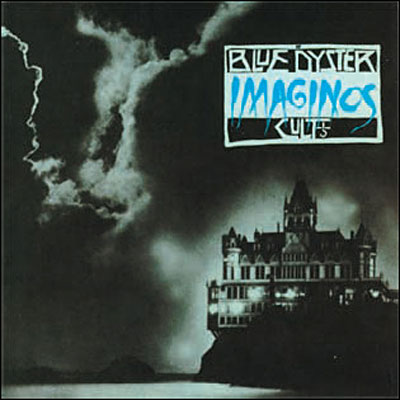
If you’re ever desperate for a concentrated hit of anti-fun, I recommend you attend a photoshoot with Californian metal legends Slayer. Today, we’re down a grubby, piss-stained London alley watching four stern, mirthless men in their forties lean against a black metal gate. Plan B photographer Cat Stevens is attempting to get them to loosen up and act natural, but I honestly don’t think they know how. “Do you guys talk to each other?” she jibes. “Ever?” Cue a ripple of subdued laughter, spiked with a subtle pang of discomfort. She hit a nerve there.
“I put our longevity down to compromise,” confides Tom Araya (bass, vocals and greying beard). “And in all honesty, I think I’m the one who’s been doing the compromising. This could have been through a long time ago. It’d be really easy to break this band up. People ask me, ‘How have you managed to stay together for so long?’ It’s because I’ve allowed it.” Guitarists Jeff Hanneman and Kerry King are men of considerable girth, if you take my meaning. They wear sunglasses all the fuckin’ time, even in their luxurious but actually rather drab and dispiriting hotel rooms. Together, they stride around like the finalists in a Big Bad Wolf contest. Araya and drummer Dave Lombardo are impeccably polite and cheerful. That is, when they’re not around Hanneman and King.
“Another thing,” adds Araya, “is that you’re bound by obligations. You have contracts. At the beginning it wasn’t like that. But now everything is paper and signature. ‘This says here that I own you. Until you’ve met your commitments, you’re stuck with me.’ So, you learn to avoid all that rather than shoot yourself in the foot and have people start telling you, ‘It’s your fault this is all going to hell – you gotta pay!’
“But,” he sighs. “I really believe in this band. That’s the biggest part. I believe in the music we create.”
“I live it every day/Don’t know another way” – ‘Catalyst’
Slayer’s new album Christ Illusion is being hailed as a ‘return to form’ for the band. Those transmitting this particular meme may have missed 2001’s utterly savage God Hates Us All, but more about that later. In any case, Christ Illusion isn’t a return to form, nor is it a case of ‘if it ain’t broke don’t fix it’ laziness, as suggested when it was reviewed in September’s Plan B. Listen to the ouevre from 1983’s Show No Mercy onward and two things become evident. First, Slayer never lost their form. Second, no two Slayer albums sound alike: the AC/DC of thrash they ain’t. Christ Illusion represents yet another shift in the band’s sound, being blunter and more claustrophobic than any of its predecessors. Everything sounds a little too close for comfort, a little too real. If, as Plan B’s George Taylor states, “The real magic has left the stage”, then it’s perfectly consistent with where Slayer are right now. In 2006, they have no use for magic. No time for illusion. No mercy.
Constant throughout all this mutation has been the furious howl of vocalist and bassist Tom Araya. Much of the attention devoted to Slayer has concentrated on King and Hanneman’s riffs and their wayward, almost harmolodic soloing, or Lombardo’s formidable drumming. But Araya’s vocals are an indispensible element of Slayer’s sound, hidden in plain view, yet immediately recognisable and distinct from the generic ‘cookie monster’ style that predominates in the world of extreme metal.
“When I go back and listen to Show No Mercy, Haunting The Chapel and Hell Awaits,, you can hear that I’m trying to sound really angry and aggressive,” Araya smiles. “But on Reign In Blood, I started singing differently. It just came naturally. I guess it became very distinctive. I’m amazed I was able to sing the way I sang on those first three records, because singing that way can really fuck up your voice. Maybe in the studio I was doing that, but when I sang the songs live, I was belting them. So when people say, ‘You’re a singer!’ I say, ‘No, I’m more the screamer in the band. I scream in key’.”
He’s also a consummate character actor, inhabiting each lyrical role with genuine conviction. Songs concerning serial murderers are a staple of metal, but few are invested with the humanity and empathy Araya brings to ‘Dead Skin Mask’ (an ode to Ed Gein) or ‘213’ (a tribute to Jeffrey Dahmer). On putrescently psychedelic numbers such as ‘Seasons In The Abyss’, ‘Bloodline’ and their cover of Iron Butterfly’s ‘Inna Gadda Da Vida’ it is Araya that brings the weirdness, his multitracked vocal lines slipping and sliding over King and Hanneman’s riffs with queasy lubriciousness. Lombardo graciously acknowledges Araya’s contribution to the band’s rhythmic impact.
“When Tom sings,” remarks the drummer, “the guitars become just a floating sound. It’s not something that I follow. But there’s something between me and him, the vocals and the drums, that sets this pulse. It’s amazing. I heard a recent live recording, it was one of the slower ones like ‘South Of Heaven’ or ‘Dead Skin Mask’ and man, we were just dead on! Tom’s vocals were locking into the drums and it grooved so well, I was just blown away. I kept playing it over and over again, telling my kids, ‘Listen to that! Listen to that! Listen how he locks into the drums!’ Everything else didn’t matter. What mattered was the vocals, and the beat.”
Dave Lombardo rejoined Slayer in 2001 after a nine-year absence, but Christ Illusion is the first album to feature his unmistakable double-kick work since 1990’s Seasons In The Abyss. During his time away from the band he established himself as one of the world’s leading avant-rock drummers, working with John Zorn, Mike Patton and DJ Spooky. While his replacement Paul Bostaph did a fine job of keeping the heartbeat of Slayer speeding into the (blood) red, Lombardo brings a non-metal dexterity and suppleness to their music, incorporating the exploratory zeal of the dedicated improviser. “I always wing it,” he nods. “I make it up as I go along and even live, I try to add a little bit more. Because I’ve learned the songs so well, it’s like, ‘Wow, I should have done this in the recording session!’ But I can never go back. It’s an increased courage. I’m more positive and more confident about what I’m doing now. It’s good to be back.”
Lombardo’s stupefying, rapid-fire battery was instrumental in making 1986’s Reign In Blood a serious contender for the title of The Greatest Metal Album Ever Recorded. Around 28 minutes of concise brutality and relentless morbidity, Reign In Blood is the album most owned by people who only own one Slayer album. And perhaps rightly so.
But while Reign’s place in the canon is secure, I’d argue for God Hates Us All as Slayer’s greatest achievement on their own terms. A grand dramatisation of Kerry King’s bitter disgust at everything, God Hates Us All essays alienation on a galactic scale. It’s a sonic invocation of the secret part of us that identifies with the suicide bomber, the serial killer, the extremist…The part of us that wishes the whole world would just fuckin’ burn, because that’s all we deserve. We’re all complicit in the endless cycle of human misery, whether through inaction, malice or plain human weakness. It doesn’t matter. We’re all the same. Guilty as fuck.
“I hate everyone equally…just me in my world of enemies” – ‘Disciple’
It isn’t solely a case of Slayer – or Kerry King – versus the world. The band’s rage is equally capable of turning in on itself. But while the internal conflicts experienced by contemporaries such as Metallica and Megadeth have resulted in dismembered lineups, substandard music, or both, Slayer are peculiar in that the antagonism that lies just beneath the surface seems not only to fuel the band’s creativity but also ensure their continued survival. During our interview, Tom Araya implies that his unhappiness with King and Hanneman’s tight grip on the songwriting credits almost led to his departure. However he claims to have learned how to use this dissatisfaction as a motivational tool. It sounds debilitating in theory, but check the guy’s track record – it works.
“I have to find an outlet for it,” chuckles Araya. “And it seems to work well for me. It’s that constant drip of oil, fuelling the fire.”
There’s no better indication of negativity fostering creativity than ‘Supremist’, the last song on Christ Illusion. It’s a damn near perfect illustration of why Slayer are still a vital creative force after 20-odd years. ‘Supremist’ is a musical scourge, a purge, a holocaust. Sure, you’ve heard that before. But this song is genuinely horrifying, more so than anything death metal or grindcore has to offer and on a par with the rampant nihilism of Norway’s black metal elite, minus the cartoonish Satanic posturing. Beginning as a waspish hardcore speed-fest, the song warps through various riffacious permutations until it bursts into the final movement, at which point everything just goes off. Tom – frenzied yet excruciatingly human – intones, “Must maintain control of the weak/Must contain the minds of the free”, while Kerry and Jeff lay down an electric hellscape somewhere between classic Celtic Frost, Godflesh and early Swans. Shards of feedback descend like fire from heaven and guitar strings whine like the human spirit crushed under the yoke of tyranny.
I tell Tom that this is the most chilling song on the album, and add that its effect is less to do with velocity or heaviness, but the creation of an atmosphere that is uniquely Slayer-ish.
“When you hear a riff, it’s not a question of whether it sounds like it should be a Slayer riff or whatever,” he agrees. “It’s about creating an atmosphere. It’s got nothing to do with speed, it’s got nothing to do with the cookie monster voice. It’s got everything to do with the mood that you’re creating.”
That old chestnut from George Orwell’s Nineteen Eighty-Four about a boot stamping on a human face, forever…Well, it’s been a little overused. But fuck it, it applies here. ‘Supremist’ is a stark vision of humankind’s final subjugation and subsequent extinction. In a world where you might be worried about stepping on a bus, train or plane for fear of being blown to bits by homemade explosives, or about the increasingly stubborn weirdness of American foreign policy, or about the stifling climate of fear that we’ve been plunged into over the last few years, this is potent, relevant stuff.
Meanwhile, the rictus grin ‘culture of the monoform’ as described by filmmaker Peter Watkins (Punishment Park, The War Game, The Gladiators) grows ever more firmly entrenched. As the world collapses around our ears, we’re encouraged to keep smiling, keep fucking, keep shopping. Yet also to be afraid. Very afraid. It’s a mad world, for sure. And if any band articulates that madness more accurately than Slayer, I’ve yet to hear them.









